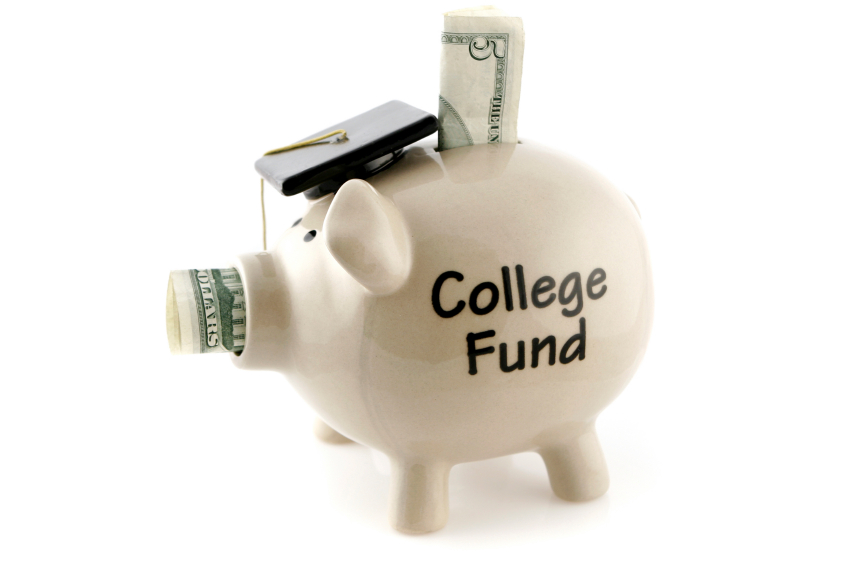 College is a time not only for academic learning but also learning those skills you will need for survival in the adult world. One area that tends to cause problems for many college students is finances and money. For many young adults, college is the first time they are responsible for managing their money without their parents to help. Additionally, the way you manage money in college tends to follow you into adulthood not only in financial patterns but also it terms of your credit score and ability to receive credit. By the end of college, students will have experience with many financial experiences that hopefully has taught them how to manage their money in the future.
College is a time not only for academic learning but also learning those skills you will need for survival in the adult world. One area that tends to cause problems for many college students is finances and money. For many young adults, college is the first time they are responsible for managing their money without their parents to help. Additionally, the way you manage money in college tends to follow you into adulthood not only in financial patterns but also it terms of your credit score and ability to receive credit. By the end of college, students will have experience with many financial experiences that hopefully has taught them how to manage their money in the future.
Checking and Savings Accounts - All college students should have a personal checking account and a personal savings account in their name that they have access to via an ATM or debit card. For many parents, this is a huge step towards helping their child become independent. However, there must be an agreed upon set of rules regarding these accounts. Parents need to explain about overdrawing accounts as well as how to deposit money and keep records of the transactions affecting the account. Many students would prefer to do their banking online which is completely acceptable and generally a good idea as online banking will become the dominant manner of banking in the future.
Credit Cards – College student are ripe pickings for credit card companies. While many universities have limited credit card companies' access to the campus, students may still receive numerous offers via email or regular mail. While it is important for students to being building credit for themselves while in college, it is very easy for them to get caught up in having access to what seems to be limitless funds. Very quickly, students may find themselves in financial trouble, owing a significant amount of money to different companies usually at a high interest rate. Parents need to explain to their student how credit cards work and how to use them responsibility. Unfortunately, students that have credit problems in college not only will be responsible for the debt they incur, but will also find that the issues created by misuse of credit cards will follow them into their adult lives.
Loans - Between student loans and other tuition loans, students will find themselves signing many loan papers as well as disbursement papers. It is easy just to walk into the financial aid office, sign the papers, then go on with your day. However, students should review the documents they are signing, even if it is soon after they have signed the papers. If there are any questions or concerns, the student should return to the financial aid office and have their questions answered. The financial aid advisors know about the system and have worked with many students in the past so no one should feel intimidated or overly naïve by going to an advisor and asking questions. You will be responsible for paying back the loans for several years so you should understand your responsibilities for them.
Budgets - Due to the fact that they are responsible for their own money, students should be familiar with creating budgets, particularly if they are living in off-campus housing and are responsible for paying rent and other expenses. Creating and managing a budget isn't an in-born skill; student must be taught now to create a reasonable budget and how to stick to it. Parents can help their student set up a budget or looking over the one created by their student for accuracy and usefulness. Many students will overestimate how much money they will need for expenses and underestimate their needs for incidental purchases and entertainment costs. Setting up online bill pay through the bank where the student's accounts are located is an effective way to manage finances and stick to the budget considering necessary monthly payments such as rent or utilities.
Job-Related Issues - While most students worked part-time jobs while in high schools, they may not have been completely aware of the issues related money and their job. However, in college, students will become keenly aware of taxes and withholdings once they are drawing a check that has to be used for necessities as well as incidentals. Parents and students need to decide who will claim the student on income taxes and students need to be aware of how taxes are determined, the terminology related to taxes, and the responsibilities of tax payers. If you don't feel comfortable teaching your student about taxes, a certified public accountant or tax specialist should be consulted. During the first year of college, parents should have their taxes done by a professional, even if they are used to doing their taxes themselves. Most tax preparers will help parents and students find the most advantageous way to file taxes for all parties involved as well as help students understand the tax process.
Personal finance can be a difficult thing for students to learn at any age. However, for college-aged students, understanding the concepts of personal finance and applying those concepts are essential. The financial choices and actions a student makes in college can affect them long after graduation. Yet, with some guidance from their parents and a few small, hard lessons, students can look forward to financial security and good credit as they embark on adult life after graduation.
Allen Jones is a professional blogger the provides business and personal financial advice and information. He writes for PureChecks.com, the leading check company that will deliver your checks by mail fast.







